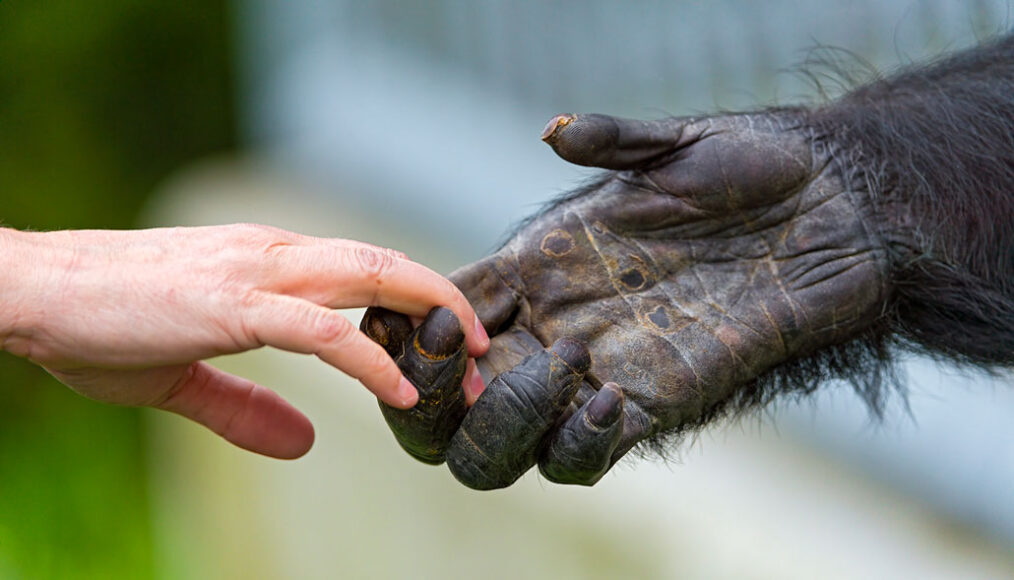ape: A group of rather large primates that lack a tail. They include gorillas, chimpanzees, bonobos, orangutans, gibbons and humans. Most people tend to group humans into their own separate subcategory owing to a number of special traits. These include a larger brain, greater mental abilities (including being able to talk) and their ability to walk on two legs.
extinct: An adjective that describes a species for which there are no living members.
family: A taxonomic group consisting of at least one genus of organisms.
gene: (adj. genetic) A segment of DNA that codes, or holds instructions, for a cell’s production of a protein. Offspring inherit genes from their parents. Genes influence how an organism looks and behaves.
genus: (plural: genera) A group of closely related species. For example, the genus Canis — which is Latin for “dog” — includes all domestic breeds of dog and their closest wild relatives, including wolves, coyotes, jackals and dingoes.
great ape: A term for most apes (large primates that lack a tail). These include gorillas, chimpanzees, bonobos, orangutans and humans. Most scientists tend to group humans into their own separate subcategory owing to a number of special traits. These include a larger brain, greater mental abilities (including being able to talk) and their ability to walk on two legs. The only “lesser” ape is the gibbon.
hominid: A primate within an animal group that includes humans and their ancient upright-walking relatives. Some scientists also include chimpanzees, gorillas and orangutans as hominids.
Homo: A genus of species that includes modern humans (Homo sapiens). All had large brains and used tools. This genus is believed to have first evolved in Africa and over time evolved and radiated throughout the rest of the world.
Homo naledi: An extinct human relative of unknown age. The bones of this species were found in a cave system in South Africa, beginning in 2013.
Neandertal: A species (Homo neanderthalensis) that lived in Europe and parts of Asia from about 200,000 years ago to roughly 28,000 years ago.
orangutan: One of the great apes (which also include gorillas, chimpanzees and bonobos), this red-haired tree dweller shares 97 percent of its genes in common with humans. They can live for 60 years, with adults weighing 48 to 130 kilograms (105 to 286 pounds) depending on gender, age and health, with males being bigger. They have opposable thumbs (as humans do) and also opposable big toes, which aids in their gripping.
organism: Any living thing, from elephants and plants to bacteria and other types of single-celled life.
primate: The order of mammals that includes humans, apes, monkeys and related animals (such as tarsiers, the Daubentonia and other lemurs).
species: A group of similar organisms capable of producing offspring that can survive and reproduce.
taxonomy: The study of organisms and how they relate or have branched off (over evolutionary time) from earlier organisms. Often the classification of where plants, animals or other organisms fit within the Tree of Life will be based on such features as how their structures are formed, where they live (in air or soil or water), and where they get their nutrients. Scientists who work in this field are known as taxonomists.

